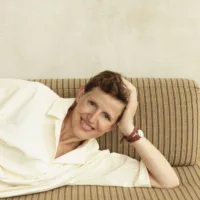The Master of Music New Audiences Innovative Practice at the Royal Conservatoire in The Hague is for all music students (instrumentalists, singers, composers, Art of Sound) who wish to become creative makers. For those who want to develop their craft and creative skills, their agency and vision, to engage and challenge the practice of music.
As a bachelor student you already stood out as a musician with plans for unconventional performances. You have started to explore your own fascinations and would like to translate those into projects that will make a difference for others. You are eager to innovate and collaborate, possibly also with other disciplines. You are curious about your potential audience because you feel the urgency to make an impact. During this master you will deepen your artistic knowledge, skills and vision to initiate, develop and own your creative path.
Master Project
During the master you will develop your Master Project, that consists of three domains: artistic development, research and professional integration. You will receive individual guidance, participate in group lessons and peer learning. In the artistic domain, you can divide your individual lessons amongst teachers that suit your artistic skills and interests.
A big part of the Master NAIP is building your portfolio. This portfolio is a collection of extracurricular experiences, activities and reflections that shape and drive your development.
For more information, see the Master Project Plan Guidelines at the bottom of this page.
First Year
During the first year of the master you will be challenged to think about what you find important and fascinating and how to communicate this. What do you want to create? Why, and for whom? Furthermore, you will develop your performative, communication, collaborative and leadership skills. You will learn about stage craft and theatrical elements, and who could be your audience. You’ll exchange ideas with inspiring professional makers from different fields on how to get from dream to reality, what work forms would fit your plans and how to possibly finance it. You will discover how to create a link (embed in?) between your artistic practice and current societal issues, and learn about existing initiatives that are already making a difference.
Second Year
In the second year, there is room to further shape and realize your plans and projects. For your individual lessons in the artistic domain, you choose one or multiple teachers that suit your artistic development. You will continue to deepen your knowledge and develop relevant skills through activities that add to your portfolio. You continue exchanging ideas with peers and professional makers from different fields. You conclude the Master with a final presentation that includes both performance and reflection.
Teachers
Specifications
Language
English
Lessons
1x 50 min p/w and coaching
Duration
2 years
Degree
Master of Music
Tuition fee
Check 'Tuition fees'
Department head
Cora Burggraaf












